10 Things to Do: Granada, Nicaragua
Few Central American cities can compete with the colonial charm and lovely surroundings of Granada, Nicaragua—the region’s oldest city (founded in 1524). Granada is less than an hour’s drive from Nicaragua’s capital, Managua, and nearly as close to pristine Pacific beaches. Here’s what to do: 1. Avoid the Heat. Midday temperatures often soar above 90 … Read more
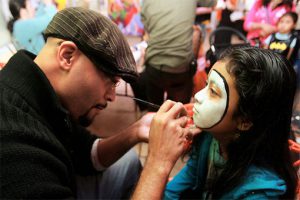
Museum Scene: A Latino Cultural Landmark
The new look of New York’s El Museo del Barrio, the city’s leading Latino cultural institution, is attracting art enthusiasts far beyond its East Harlem location. The museum reopened in October, following an 18-month renovation, with both structural improvements and an expansion of its public programming to include more free or low-cost concerts, lectures, films, … Read more
Gay in the Americas
Tolerance for minority rights is the hallmark of liberal democracies. Indeed, without such tolerance, democracy is fatally flawed. Creating an atmosphere of tolerance for minorities is one of the key challenges in constructing and deepening democracy in our hemisphere. The shameful treatment of African Americans in the United States, for example, persisted for decades after … Read more
Aviation: Mixed Signals For Latin America’s Aeronautics
Even in the best economic times, it is impossible to untangle and interpret the contradictory trends in Latin American aviation. Now, in what is for many industries a time of slow economic recovery, the aviation industry is looking promising. New flight routes, new equipment purchases and higher passenger traffic indicate that 2010 may be a … Read more
Migrants: The Threat of Crime
Threats against U.S.-bound migrants from Mexico are on the rise. Government corruption and inattention to migrants’ security is encouraging organized crime groups to become increasingly bold in kidnappings and ransom demands. Crime is not the only threat. Although the economic crisis has reduced the migrant flow since 2006, deaths have increased during the perilous desert … Read more
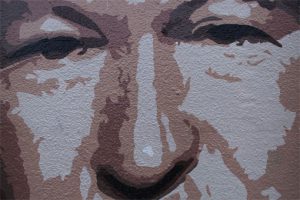
The Andean Arms Race
Hugo Chávez has a flair for getting under the skin of his opponents, whether he is goading King Juan Carlos of Spain into an exasperated request to “shut up,” or branding then-U.S. President George W. Bush “the devil” during a speech to the UN General Assembly. But the Venezuelan president went beyond his customarily florid … Read more

[i]AQ[/i] talks to Diego Luna on documenting Mexico’s human rights abuses.
Mexican actor Diego Luna, who starred in Y tu mamá también, Milk and Rudo y Cursi, has been spending more time behind the camera since co-founding (with Gael García Bernal and director Pablo Cruz) CANANA films in 2003. In addition to producing 12 films (including Luna’s directorial debut, J.C. Chávez), the company partnered with WITNESS, … Read more
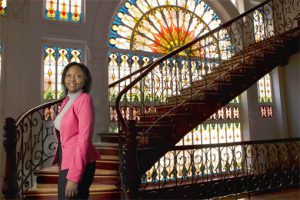
The Unifier
Young people have the challenge—and the responsibility—of changing the world. I believe we are living through a special moment today that I like to call “the globalization of diversity.” Communities and citizens everywhere are starting to welcome cultural, racial and ethnic differences, rather than see them as weaknesses. In Colombia, we are experiencing the same … Read more
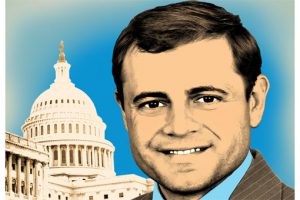
The Activist Politician
I belong to Generation X, which I think can be more accurately described as the Community Service Generation. We don’t sit on the sidelines. We have volunteered in record numbers and pioneered nonprofit organizations, using entrepreneurial savvy to solve our communities’ seemingly intractable problems. We took our talents directly into the schools and prisons. But … Read more
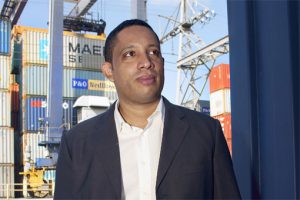
The Techie
Our generation expects gratification. Previous generations did not have instant access to information nor the ability to communicate with the same level of immediacy that the Internet, mobile phones and BlackBerries give us today. We have become less forgiving of delays and inefficiencies. But the flood of instant information has its risks. This is particularly … Read more
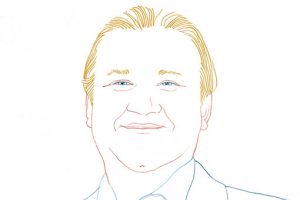
The Pragmatist
I had my first crash course in politics in 1989. I was 11 years old, scared and surrounded by bombs and gunfire. The city of San Salvador was under attack in what would become the last push from left-wing guerrilla forces of the Frente Farabundo Martí para la Liberación Nacional (FMLN) to take the country. … Read more
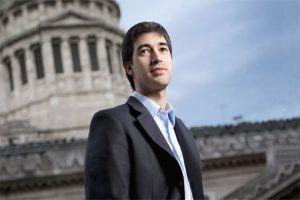
The Third Man
Like many of my fellow citizens, I began participating in politics in the early days of Argentine democracy, following the fall of the military regime in December 1983. Back then, we were convinced that only through political involvement would we be able to contribute to the creation of a truly just and egalitarian society. After … Read more
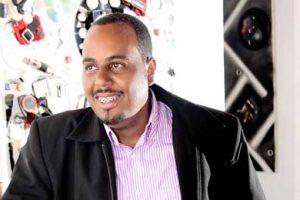
The Digital Integrator
(Join a March 31 live online discussion with Paulo Rogério.) In Brazil we have reached a decisive moment in our history. Abroad, we are now considered one of the so-called emerging countries. At home, ethnic and racial inclusion is an increasingly important part of the national agenda. On the economic front, the giant pre-salt oil … Read more
Charticle: Indexing the Environment
In 2006 Yale University, in collaboration with Columbia University, developed an Environmental Protection Index (EPI) that it applied in full in 2008. The goal: to create a comparative index of environmental policy to understand what governments are doing to protect their citizens’ health (environmental health) and the global environment (ecosystem vitality). The individual measures within … Read more
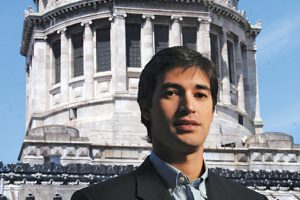
Political Innovator: Adrián Pérez, Argentina
Adrián Pérez was only 12 when former Argentine President Raúl Alfonsín came to power in 1983. But Pérez remembers it as a moment of promise for his generation, a time when the country seemed prepared to finally turn the page on its near half century of fractured politics and military rule. Pérez has not lost … Read more


